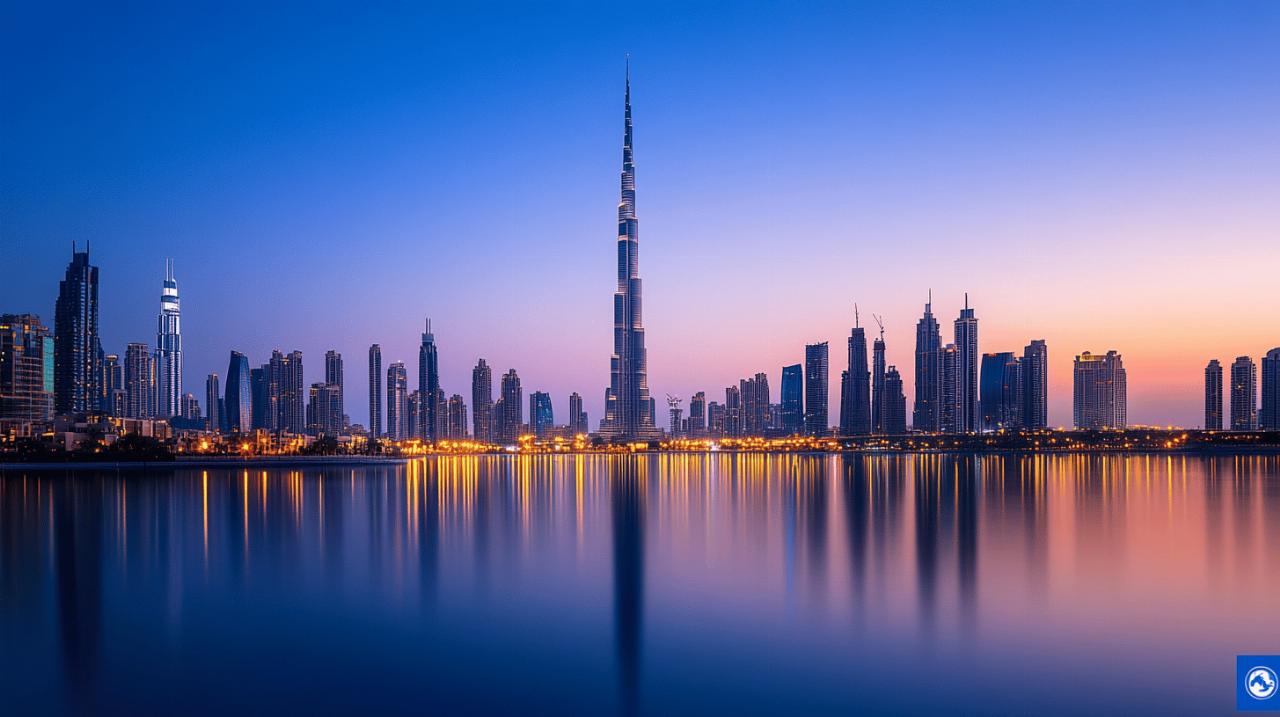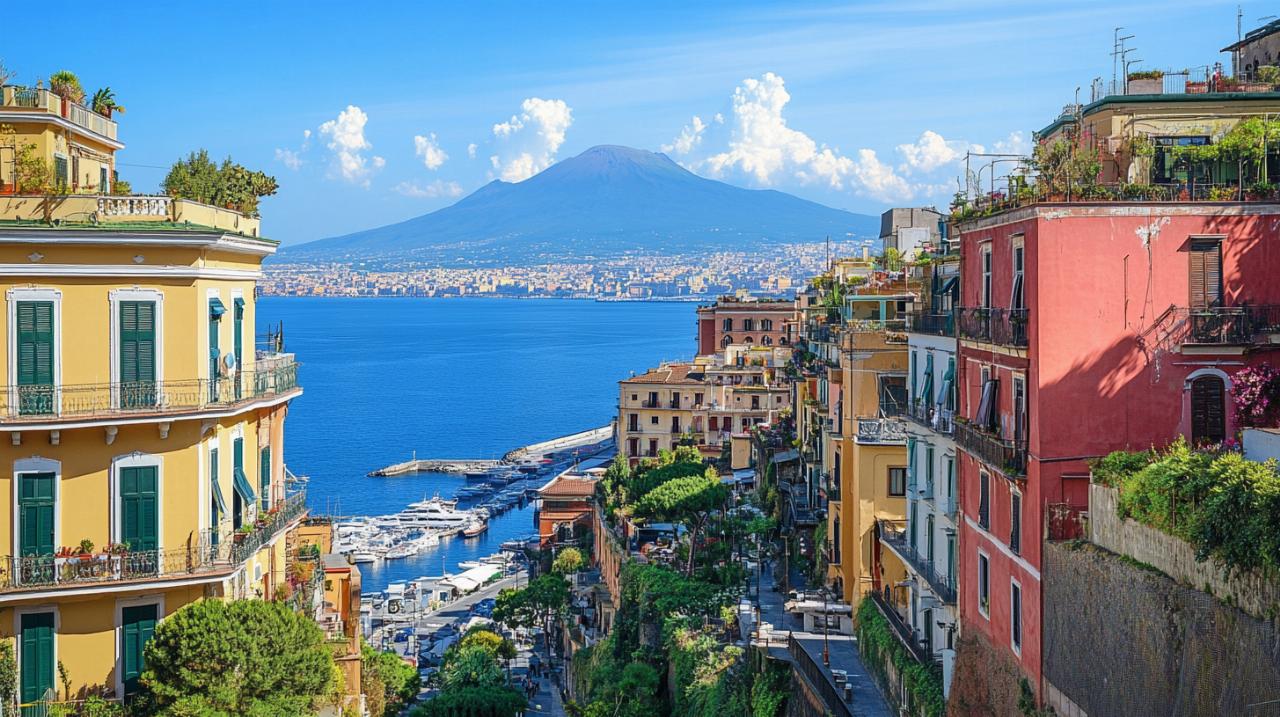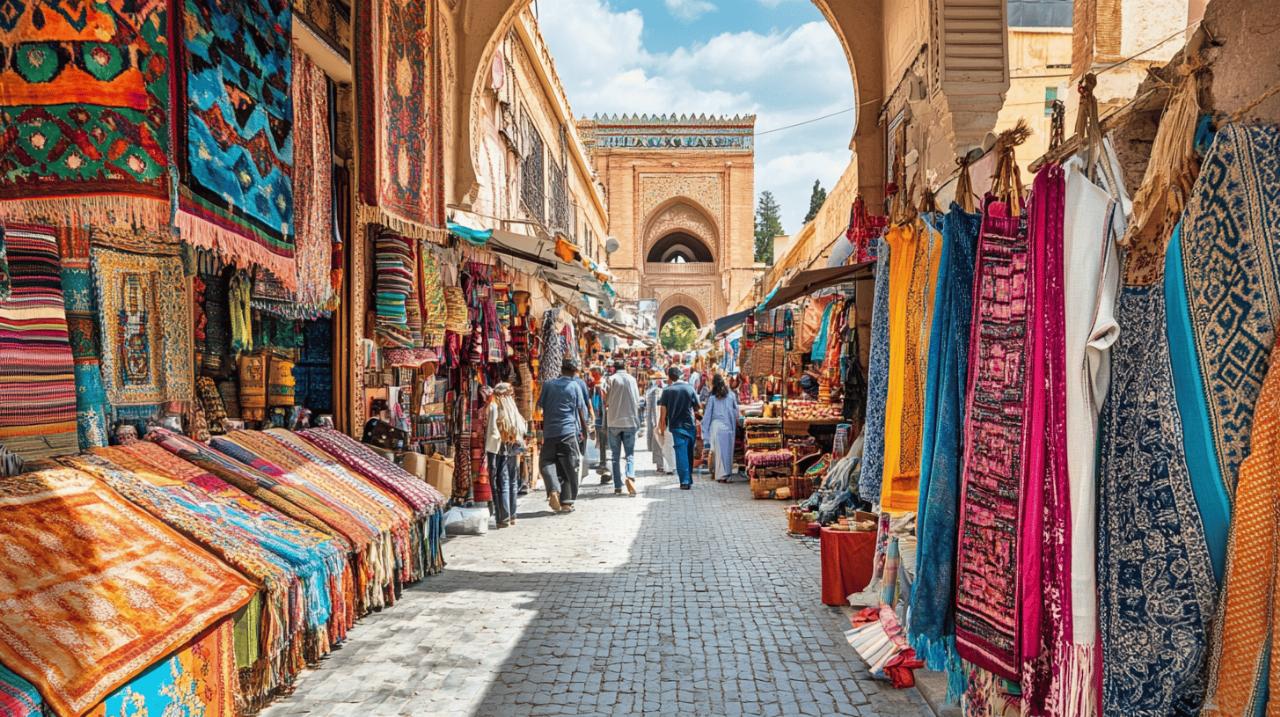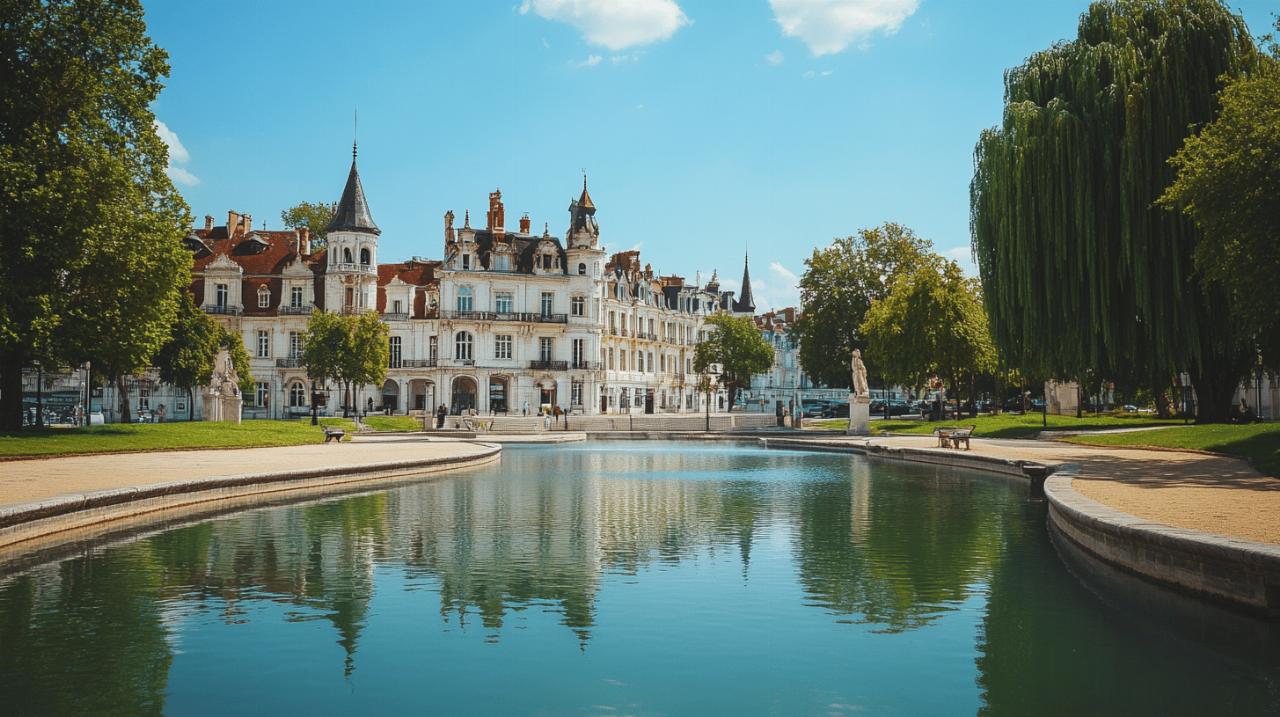As we step into 2025, the concept of travel is evolving beyond mere exploration to encompass responsibility towards our planet. January, with its promise of new beginnings, offers the perfect opportunity to embark on journeys that leave positive footprints rather than carbon ones. Sustainable tourism isn't just about preserving natural landscapes; it's about creating meaningful connections whilst minimising harm to the destinations we cherish.
Ethical adventures: exploring france's green revolution
France has long been a beacon for travellers, but beyond the iconic landmarks of Paris lies a country embracing sustainable tourism development with remarkable enthusiasm. The nation is pioneering regional tourism ecosystems that balance cultural heritage with environmental consciousness. French tourism authorities are leveraging digital transformation to enhance visitor experiences while reducing resource consumption, creating a model for other European destinations.
Hidden gems beyond Paris worth your sterling
While Paris commands attention, France's lesser-known regions offer authentic experiences that distribute tourism benefits more equitably. The cultural tourism opportunities in these areas contribute significantly to local economic benefits, with traditional villages and historical sites implementing innovative approaches to visitor management. These destinations exemplify how tourism infrastructure can be developed without compromising the environmental impact or cultural integrity that makes them special.
Rochefort's coastal charm and conservation efforts
The coastal town of Rochefort exemplifies France's commitment to sustainable tourism. Once a naval arsenal, this Atlantic gem has transformed into a destination where water resource management and heritage preservation work hand in hand. Tourism spending here directly supports marine conservation initiatives, with local businesses forming public-private partnerships to protect the fragile coastal ecosystem. Visitors can explore the maritime history while participating in conservation efforts, creating a holiday experience that enriches rather than depletes.
Costa rica's biodiversity: a model for responsible tourism
Costa Rica continues to set the gold standard for ecotourism, aligning its tourism market growth with the UN Sustainable Development Goals. The country has developed comprehensive tourism resources that showcase its extraordinary biodiversity while ensuring its protection. With approximately 6.5% of global emissions attributed to tourism greenhouse gas emissions in 2023, Costa Rica stands out for its carbon-neutral ambitions and practical implementation of sustainable practices.
How local communities benefit from mindful visitors
The success of Costa Rican tourism lies in its community-centric approach. Tourism employment in local communities creates economic sustainability while preserving cultural identities. The country has masterfully balanced domestic tourism with international visitors, ensuring that tourism consumption patterns benefit those who call these paradises home. Gender equality in tourism is also prioritised, with women occupying leadership positions and contributing to decision-making processes that shape the industry's future.
Wildlife conservation success stories driven by tourism
Costa Rica demonstrates how tourism can actively contribute to conservation rather than threaten it. Revenue from visitors funds protection for endangered species and habitat restoration projects. The tourism carbon footprint is offset through extensive reforestation efforts, creating a virtuous cycle where travel actually enhances rather than damages the environment. This approach has resulted in remarkable recoveries for several species that were once on the brink of extinction, proving that well-managed tourism can be a powerful force for ecological good.
The art of slow travel: quality over quantity
As we navigate 2025, the philosophy of slow travel is gaining momentum among conscientious globetrotters. This approach rejects the frantic pace of traditional tourism in favour of deeper, more meaningful experiences. Rather than racing between destinations, travellers are spending extended periods in single locations, truly immersing themselves in local cultures and reducing the environmental impact associated with frequent transport.
Reducing your carbon footprint whilst enhancing your experience
Slow travel naturally decreases tourism carbon footprint by minimising the number of flights and journeys taken. The digital transformation of tourism has enabled visitors to work remotely from their destinations, with the global population of digital nomads reaching 40 million in 2023 and projected to hit 60 million by 2030. This shift in tourism consumption patterns allows for longer stays that distribute economic benefits more evenly throughout the year, reducing the strain of seasonal tourism peaks on local resources.
Connecting with locals: The heart of meaningful travel
The most enriching aspect of slow travel is the opportunity to form genuine connections with local communities. When visitors spend weeks rather than days in a destination, they move beyond superficial tourist experiences to understand the authentic rhythms of local life. This cultural exchange benefits both parties, with tourism resources being utilised in ways that respect and preserve local traditions. Studies show that 74% of travellers now believe urgent action is needed for more sustainable travel, indicating a growing awareness of tourism's potential for positive impact when approached mindfully.
Making Choices That Matter: Your Role as a Responsible Traveller
 The power to transform the tourism industry ultimately rests with individual travellers. Every decision, from selecting accommodations to choosing activities, contributes to either the problem or the solution. With tourism spending reaching approximately $11.1 trillion globally in 2024, consumer choices have never had more potential to drive positive change in environmental and economic sustainability.
The power to transform the tourism industry ultimately rests with individual travellers. Every decision, from selecting accommodations to choosing activities, contributes to either the problem or the solution. With tourism spending reaching approximately $11.1 trillion globally in 2024, consumer choices have never had more potential to drive positive change in environmental and economic sustainability.
Selecting accommodation with genuine green credentials
The hospitality sector is responding to demand for genuinely sustainable options, moving beyond superficial greenwashing to implement meaningful changes. Look for accommodations that transparently report their environmental impact and have verifiable certification from recognised bodies. The best properties integrate water resource management, waste reduction, and energy conservation into their core operations rather than as marketing afterthoughts. These establishments often forge public-private partnerships with conservation organisations and contribute directly to local community projects.
Supporting businesses that prioritise sustainable practices
Beyond accommodation, every tourism service provider you choose matters. Tour operators focused on sustainable tourism development typically limit group sizes, employ local guides, and ensure fair compensation throughout their supply chain. Restaurants committed to environmental sustainability source ingredients locally, reducing food miles while supporting regional farmers. Adventure tourism companies that follow strict ecological guidelines protect the natural environments that make their experiences possible. The adventure tourism market is projected to reach $1.3 trillion by 2026, representing significant potential for positive impact if directed toward businesses with genuine environmental credentials.
Economic impact: how sustainable tourism boosts local prosperity
Sustainable tourism stands as a powerful economic driver for communities across the globe. The sector contributed an estimated £8.6 trillion to the global economy in 2024, demonstrating its massive financial potential. When managed thoughtfully, tourism creates wealth that stays within destination communities rather than leaking to international corporations. This economic model prioritises fair distribution of tourism benefits whilst maintaining cultural integrity and environmental balance.
The shift towards sustainable travel practices isn't merely a passing fancy but a fundamental reimagining of how tourism operates. With domestic travel accounting for roughly 75% of global travel spending and seeing an 18.1% increase in 2023, many regions are discovering that sustainability and economic growth can work hand in hand. This approach aligns perfectly with the UN Sustainable Development Goals, particularly those focused on economic sustainability and local prosperity.
Job creation and skills development in destination communities
Sustainable tourism serves as a significant employment generator, often becoming the economic backbone in regions with limited industrial alternatives. The sector creates diverse opportunities ranging from direct hospitality roles to positions in supply chains, transportation, and cultural preservation. What sets sustainable tourism apart from mass tourism models is its focus on quality employment—jobs that offer fair wages, dignified working conditions, and growth potential.
Skills development represents another vital benefit. Tourism naturally promotes language proficiency, cultural exchange, and professional development, providing local populations with transferable skills. Many sustainable tourism initiatives deliberately incorporate training programmes, mentorship, and career advancement pathways for community members. Women make up a substantial portion of the tourism workforce, though challenges remain in ensuring they access senior positions and receive equal pay—making gender equality in tourism an ongoing priority for truly sustainable development.
Measuring the financial benefits of responsible travel spending
The economic impact of sustainable tourism extends far beyond simple visitor numbers. Financial benefits flow through multiple channels, creating a multiplier effect throughout regional tourism ecosystems. Direct spending at locally-owned accommodations, restaurants, and attractions ensures money circulates within communities rather than being extracted by external corporations. Research shows that approximately 45% of trips now go to developing countries, where tourism can constitute between 60-90% of GDP in the most tourism-dependent nations.
Public-private partnerships have emerged as crucial mechanisms for maximising these economic benefits. By bringing together government resources, private sector innovation, and community involvement, these collaborations create tourism infrastructure that serves both visitors and residents. Digital transformation plays an increasingly important role in this equation, with technologies helping small tourism businesses reach global markets. The growing digital ecosystem connects customers and providers directly, reducing dependency on intermediaries and increasing the percentage of spending that reaches local economies. This approach to tourism consumption patterns—emphasising local ownership, fair distribution of profits, and long-term economic sustainability—represents the future of travel that benefits both visitors and hosts alike.





















